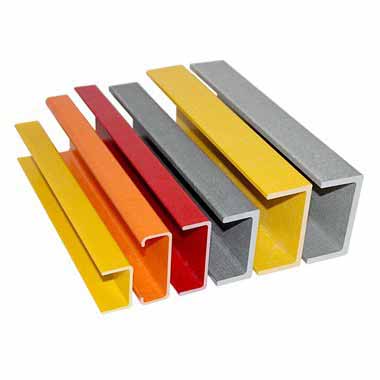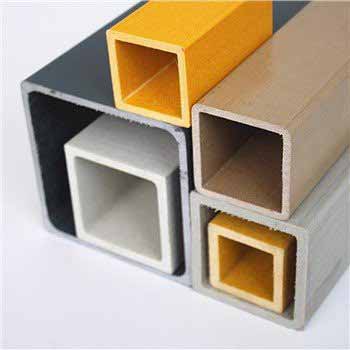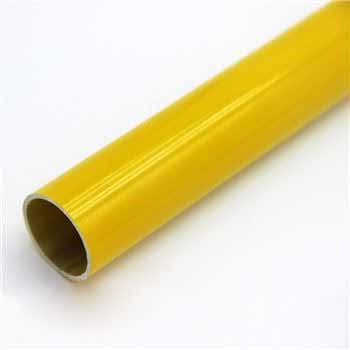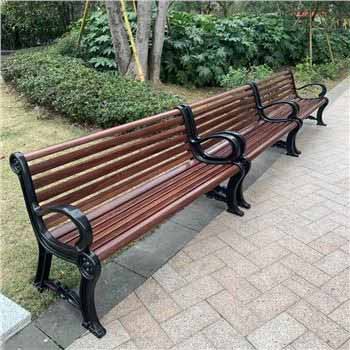Fiberglass channels are structural components that are made of fiberglass reinforced plastic (FRP), a composite material that combines the strength and stiffness of fibers with the corrosion resistance and light weight of resin. Fiberglass channels have many advantages over traditional materials such as steel, wood, or concrete, such as:

High strength-to-weight ratio: Fiberglass channels can support heavy loads with less material and weight, reducing the cost and complexity of installation and transportation.
Corrosion resistance: Fiberglass channels can withstand harsh environments such as salt water, chemicals, acids, alkalis, and UV rays, without rusting, rotting, or deteriorating.
Thermal and electrical insulation: Fiberglass channels do not conduct heat or electricity, making them ideal for applications that require thermal or electrical isolation.
Fire retardance: Fiberglass channels have a low flame spread and smoke emission rating, meeting the fire safety standards of various industries.
Design flexibility: Fiberglass channels can be customized in various shapes, sizes, colors, and finishes to suit different aesthetic and functional requirements.
Applications of Fiberglass Channels in Different Industries
Fiberglass channels have a wide range of applications in various industries, such as:
Construction: Fiberglass channels can be used as structural supports, framing members, roof purlins, floor joists, wall studs, stair treads, handrails, and more. They can also be used as decorative elements, such as columns, arches, moldings, and trim.
Marine: Fiberglass channels can be used as boat hulls, decks, masts, bulkheads, stringers, transoms, and more. They can also be used as docks, piers, ramps, ladders, railings, and platforms for marine facilities.
Oil and gas: Fiberglass channels can be used as pipe racks, cable trays, walkways, platforms, ladders, railings, and more for offshore and onshore oil and gas installations. They can also be used as corrosion-resistant liners for pipelines and tanks.
Chemical: Fiberglass channels can be used as process equipment supports, chemical storage tanks, scrubbers, ducts, vents, hoods, and more for chemical plants and laboratories. They can also be used as spill containment systems for hazardous materials.
Power: Fiberglass channels can be used as electrical enclosures, cable trays, conduits, switchgear supports, transformer housings, and more for power generation and distribution facilities. They can also be used as cooling tower components for thermal power plants.
Transportation: Fiberglass channels can be used as vehicle bodies, chassis frames, bumpers, fenders, spoilers, grilles, and more for cars, trucks, buses, trains, planes, boats, and other vehicles. They can also be used as bridge decks, guardrails, sign posts, traffic barriers, and more for road and rail infrastructure.
Conclusion
Fiberglass channels are a versatile and durable solution for various industries that require structural components that can withstand harsh environments, high loads, low maintenance, and long service life. Fiberglass channels offer many benefits over traditional materials such as steel, wood, or concrete, such as high strength-to-weight ratio, corrosion resistance, thermal and electrical insulation, fire retardance, and design flexibility. Fiberglass channels have a wide range of applications in various industries such as construction, marine, oil and gas, chemical, power, and transportation.







